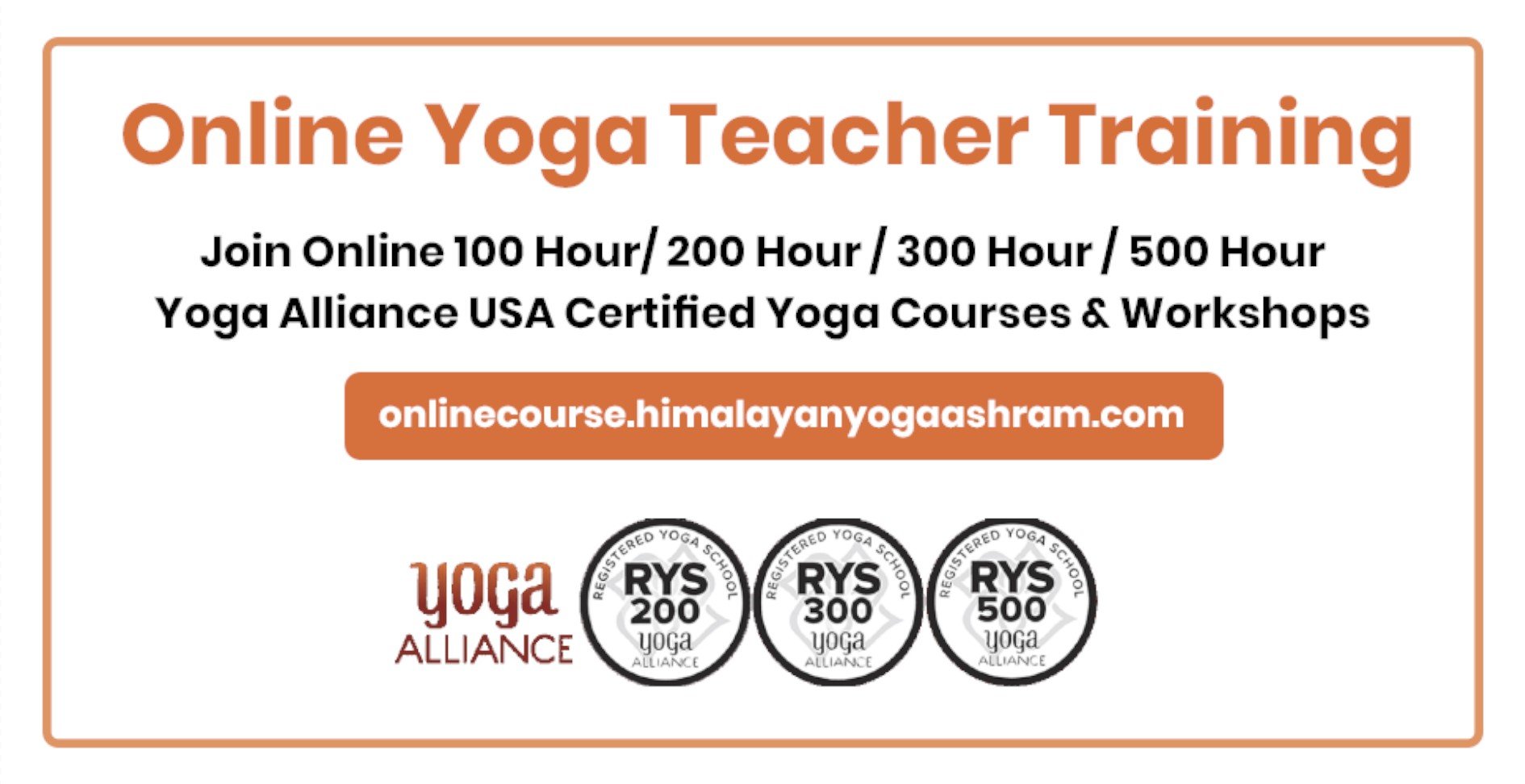10 Yoga Benefits & Uncovering the Science Behind Yoga
By Himanshu JoshiYogaFitAndFlexible, HealthAndWellness, HealthyLiving, MindBodyHealth, MindfulMovement, ScienceOfYoga, ScientificYoga, StressReliefYoga, yogabenefits
10 Yoga Advantages with Strong Scientific Evidence
An exercise, a relaxation technique, a way to connect with your inner self – yoga is many things packed into one. People who adopt this ancient practice wholeheartedly often talk about the holistic effect it has on their overall well-being. Yoga includes a combination of physical postures, breathing exercises, meditation, and relaxation techniques. The best thing about it is that it can be practiced by people of all ages and fitness levels. Yoga practitioners often suggest people to start with the practice as early as in childhood, a formative age that has an impact on habit formation and long-term health. Elderly who cannot practice rigorous exercises can easily take the Yoga route from the comforts of their homes. Yoga is widely recognised as a complementary therapy that can help improve overall well-being and quality of life. It can be effective in managing a wide range of health conditions, such as chronic pain, heart disease, depression and anxiety, and can also help to reduce stress and improve sleep.
Some of the changes you would see in yourself after you start practicing Yoga for a few weeks would be increased flexibility, improved balance, better breathing, reduced stress, improved sleep and better focus and concentration. You may notice that your body feels more flexible, and you are able to do yoga poses better that previously seemed difficult for you. You will feel increased strength in your core, upper body, and lower body.
The most wonderful part would be when you may notice that you are able to breathe more deeply and easily, and that you feel more relaxed overall. One will also find the quality of his/her sleep getting better. There are innumerable benefits of this thousands years old practice some of which have also been scientifically proven. In this article we will discuss all the research-backed benefits of Yoga.
Yoga improves flexibility
Improved flexibility is one of the first few changes you will see in your body and this can go a long way in your overall fitness as it just improves your scope of doing complex exercises. Yoga improves flexibility in a number of ways. The physical postures, or asanas, in yoga are designed to stretch and lengthen the muscles, tendons, and ligaments, which can improve a range of motions in the joints. When you perform yoga poses, you are targeting specific muscles, tendons, and ligaments, and as you hold the pose, you are stretching them.
This stretching can help to increase blood flow to the area and can also help to release tension in the muscles. Over time, regular practice of yoga poses can help to increase flexibility, range of motion, and overall muscle tone. Additionally, yoga practice also helps to improve the flexibility of the spine, which can help to reduce back pain and improve overall posture. Moreover, yoga also involves a lot of dynamic stretching, where a pose is held for a short period of time and then repeated multiple times.
This repetitive movement helps to warm up the muscles and improve the range of motion. Also, Yoga includes relaxation and meditation techniques that help to release tension and stress in the body, which can also contribute to increased flexibility. Regular practice can also help to improve range of motion in the joints, which can lead to improved posture, reduced pain, and better overall mobility.
Yoga can ease arthritis symptoms
Yoga can prevent many chronic diseases from setting in and one of them is arthritis. According to studies, Yoga helps to build muscle mass and maintain muscle strength. This protects you from arthritis, osteoporosis and back pain. Different yoga asanas can help your joints stay flexible as they take them through full range of motion, and improve circulation. Yoga can be an effective complementary therapy for people with arthritis, as it can help to ease symptoms and improve overall well-being.
Many people with arthritis find Yoga to be beneficial as it can help them exercise gently as well as reduce tension and improve joint flexibility. While practicing Yoga, people with joint issues should listen to their body and any discomfort, sharp pain, lightheadedness shouldn’t be ignored. If your joints are painful, swollen or losing their natural flexibility, it could be an early sign of arthritis. Veerbhadrasana (Warrior Pose), Vrikshasana (Tree Pose), Trikonasana (Triangle pose) and Setubandhasana (Bridge pose) are some of the asanas that can be extremely beneficial for people with arthritis.
Yoga manages depression
Depression in post pandemic world is becoming more common than ever before. From losing their loved ones to livelihoods, many people’s lives underwent a huge change during coronavirus pandemic. Also due to social distancing norms, many people became used to living a life of solitude which also affected their mental well being negatively. Yoga is known to have a positive effect on our mental health for a variety of reasons.
Yoga has been shown to be effective in managing symptoms of depression. Yoga practices such as asanas (postures), pranayama (breathing techniques), and meditation (dhyana) can help reduce stress and anxiety, improve mood, and increase feelings of well-being. Yoga can also help to improve sleep, which is often disrupted in individuals with depression. Additionally, the mindfulness and self-awareness practices taught in yoga can help individuals with depression to develop a greater understanding and acceptance of their thoughts and feelings.
Yoga relieves anxiety
Ever felt overwhelmed and out of control due to a never-ending stream of negative thoughts that paralysed your body and mind filling you with fear? Some of us also experience physical symptoms like nausea, dizziness, heart palpitations and butterflies in stomach. Anxiety can literally make you a completely different person than you are and keep you in the grip of irrational emotions.
Yoga can naturally cure anxiety as it connects you with the present moment and helps you realise that not all your fears are valid and most of your problems will resolve on their own in the due course of time. It gives you an amazing sense of control over yourself. Meditation and mindfulness practices, which are often taught in yoga, can also help individuals with anxiety to develop greater self-awareness and to learn to manage their thoughts and emotions. Studies have shown that regular yoga practice can lead to a decrease in cortisol, the primary stress hormone, and an increase in GABA, a neurotransmitter that helps to regulate mood.
It is important to note that everyone experiences anxiety differently, and that what works for one person may not work for another. Therefore, it is always recommended to consult with your doctor before starting any new exercise or mindfulness practices.
Yoga improves heart health
Your heart is one of the busiest internal organs, working non-stop pumping blood throughout the body. If you look at the anatomy of the heart, it’s almost like a house with walls, rooms, doors, plumbing and an electrical system. Together these parts supply blood and nutrients to other parts of the body. Blockage in arteries could block the flow of blood which could cause a heart attack.
A trouble with electrical system of the heart can lead to sudden cardiac arrest and immediate death. To ensure our heart is healthy we must make sure all its parts are working well which means we have to keep all the risk factors in check. High blood pressure, high LDL cholesterol, diabetes, smoking, obesity, unhealthy diet, and physical inactivity all can increase chances of cardiac diseases and cardiac death.
Yoga can be beneficial for heart health in several ways. Regular yoga practice can help lower blood pressure and cholesterol, which are major risk factors for heart disease. Yoga’s emphasis on deep breathing and relaxation techniques can also help to reduce stress and anxiety, which can contribute to heart disease.
Yoga postures, or asanas, can also help to improve blood circulation and increase the strength and flexibility of the heart muscle. The combination of physical movement, deep breathing, and relaxation that is practiced in yoga can also help to improve overall cardiovascular fitness. Research studies have shown that practicing yoga can lead to significant improvements in heart health markers such as blood pressure, cholesterol, and heart rate variability.
One study found that 12 weeks of yoga practice led to a significant reduction in systolic blood pressure and total cholesterol in individuals with hypertension and hypercholesterolemia. Another study found that practicing yoga for 12 weeks led to a significant increase in heart rate variability, which is an indicator of a healthy heart. In addition to the physical benefits, yoga also provides a holistic approach to overall health and well-being. Yoga’s emphasis on mindfulness and self-awareness can help individuals to make positive lifestyle changes that can support heart health, such as maintaining a healthy diet, quitting smoking, and managing stress.
Yoga helps in managing blood pressure
Blood pressure is a silent killer and before you know it can damage your arteries decreasing flow of blood to your heart putting it in great peril. It can even lead to kidney issues and eye damage. Yoga is an excellent therapy to manage blood pressure in addition to the medicines prescribed to you.
Research has suggested that certain yoga poses, such as the downward-facing dog, the child’s pose, and the legs-up-the-wall pose, can help to lower blood pressure. Additionally, yoga’s focus on breathing and relaxation techniques can also help to reduce stress, which is a major risk factor for high blood pressure.
It is important to consult with a doctor before starting any new exercise regimen, especially if you have high blood pressure or any other health concerns. A systematic review and meta-analysis of 12 randomized controlled trials published in the Journal of Hypertension in 2015 found that yoga was associated with a significant reduction in systolic and diastolic blood pressure compared to control groups.
Another study published in the International Journal of Yoga in 2017, found that 12 weeks of regular yoga practice was associated with a significant reduction in both systolic and diastolic blood pressure in individuals with hypertension. However, it is important to note that the studies on yoga and blood pressure have been relatively small, and more research is needed to determine the long-term effectiveness of yoga in controlling blood pressure.
Yoga can help you sleep better
One of the many aspects of our lives that Coronavirus pandemic has impacted greatly is our sleep quality. Insomnia has become more common than ever before due to changes in our routine, increased stress and also due to post Covid insomnia that affected many people.
Sleep plays an important role in our overall well-being and without getting sufficient sleep, our risk of chronic diseases go up and one is at increased risk of high blood pressure, diabetes, heart attack, heart failure or stroke. People who do not sleep well can also become obese or depressed which could further invite many other health issues. Research has shown that practicing yoga can lead to improvements in sleep quality, duration, and overall feelings of well-being. Yoga’s focus on breath control, relaxation, and meditation can help to quiet the mind and reduce stress, which are both common causes of insomnia.
A study published in the Journal of Sleep Research in 2018 found that a 12-week yoga intervention was associated with significant improvements in sleep quality, as well as reductions in insomnia symptoms, depression, and anxiety in older adults. Another study published in the Journal of Behavioral Medicine in 2017 found that a yoga and meditation program was associated with significant improvements in sleep quality, as well as reductions in perceived stress, in individuals with insomnia.
Yoga helps manage stress
One of the issues that plague us in the modern world more than anything else is stress or rather unmanaged stress. While stress in healthy amounts is important to deal with life’s challenges effectively and even be a motivator to accomplish a task, unhealthy amounts or unmanaged stress is like a poison that can completely destroy your immune system, affecting each and every function of your body and making you sick.
Research has suggested that yoga may help to reduce the physical and psychological symptoms of stress by decreasing the activity of the stress-related hormones cortisol and adrenaline. A study published in the Journal of Behavioral Medicine in 2017 found that a 12-week yoga intervention was associated with significant reductions in perceived stress and anxiety, as well as improvements in mood, in a group of healthy adults. Another study published in the Journal of Alternative and Complementary Medicine in 2016 found that an 8-week yoga intervention was associated with significant reductions in cortisol levels, as well as improvements in mood and overall well-being, in a group of women with breast cancer.
Yoga improves lung health
Are you suffering from breathlessness, persistent cough, fatigue, frequent chest infections, you must consider getting your lungs checked. It’s a challenge to keep your lungs healthy especially if you live in areas that have high air pollution. Smoking is among the leading causes of lung disease but quitting immediately can help avoid such diseases. Covid-19 led to many lung complications in even healthy people and it’s important to follow appropriate social distancing measure to prevent yourself from the infection.
The practice of yoga involves deep breathing, which can help to improve lung function by increasing lung capacity and promoting better breathing patterns. Research has suggested that yoga may be beneficial for individuals with chronic obstructive pulmonary disease (COPD) and asthma, which are conditions that affect lung function. A study published in the Journal of Cardiopulmonary Rehabilitation and Prevention in 2016 found that a 12-week yoga intervention was associated with significant improvements in lung function, as well as reductions in symptoms, in individuals with COPD.
Another study published in the Journal of Asthma in 2016 found that a 8-week yoga intervention was associated with significant improvements in lung function and quality of life, as well as reductions in symptoms and medication use, in individuals with asthma.
Yoga helps with lower back pain
Earlier what used to be an old-age problem is now becoming a common problem in people of all age groups. Sedentary lifestyle is one of the reasons people experience such issues nowadays. After the age of 30 or 40 back pain can start in some people. Not exercising or moving your body regularly can lead to weak muscles which could then begin to pain. Having excess weight is another reason people experience lower back pain as the extra weight puts pressure on the back. Yoga can help to strengthen the muscles that support the spine, increase flexibility and range of motion, and improve posture, which can all help to reduce back pain.
A systematic review and meta-analysis of 12 randomized controlled trials published in the journal of Clinical Rehabilitation in 2017 found that yoga is an effective intervention for treating chronic low back pain. Another study published in the Journal of Orthopaedic & Sports Physical Therapy in 2018 found that a 12-week yoga intervention was associated with significant improvements in pain, disability, and quality of life, as well as reductions in depression and anxiety, in individuals with chronic low back pain.
It’s important to note that different types of yoga can have different effects on back pain, and it’s important to choose a yoga class that is appropriate for your level of fitness and experience. It’s also recommended to consult with a doctor before starting any new exercise regimen, especially if you have chronic back pain or any other health concerns.
Get in touch:
Address: Himalayan Yoga Association Nirmal Block B, Lane 10, Visthapit Colony, Rishikesh, Uttarakhand 249204, Rishikesh, Uttarakhand 249192
Contact: +91-7217206223
Email: [email protected]
Read More: Yoga Teacher Training in Rishikesh | Yoga School in Rishikesh | 200 Hour Yoga Teacher Training in Rishikesh






